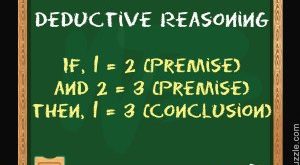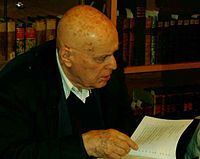On the use of logic and mathematics in economics Logic, n. The art of thinking and reasoning in strict accordance with the limitations and incapacities of the human misunderstanding. The basic of logic is the syllogism, consisting of a major and a minor premise and a conclusion – thus: Major Premise: Sixty men can do a piece of work sixty times as quickly as one man. Minor Premise: One man can dig a post-hole in sixty seconds; Therefore- Conclusion: Sixty...
Read More »The truly scientific attitude
The truly scientific attitude I recall, with sadness, a comment made to me by the author of a well-known textbook. Upon being asked whether he accepted my analysis of demand theory as presented first in 1948, the reply was positive. He added that it would not be included in his advanced textbook because “it would upset too many things and be too disturbing, i.e., Dicta non movere.” So much for the acceptance of new scientific results and for a truly...
Read More »Manufacturing strategic ignorance
.[embedded content]
Read More »Noam Chomsky on postmodern grotesquerie
Noam Chomsky on postmodern grotesquerie .[embedded content]
Read More »Hans Albert turns 100
Hans Albert turns 100 .[embedded content] Clearly, it is possible to interpret the ‘presuppositions’ of a theoretical system … not as hypotheses, but simply as limitations to the area of application of the system in question. Since a relationship to reality is usually ensured by the language used in economic statements, in this case the impression is generated that a content-laden statement about reality is being made, although the system is fully immunized...
Read More »When should we trust science?
When should we trust science? .[embedded content] Using formal mathematical modelling, mainstream economists sure can guarantee that the conclusions hold given the assumptions. However the validity we get in abstract model-worlds does not warrant transfer to real-world economies. Validity may be good, but it isn’t — as Nancy Cartwright so eloquently argues — enough. From a realist perspective, both relevance and soundness are sine qua non. In their search...
Read More »On logic and science
On logic and science Suppose you conducted an observational study to identify the effect of heart transplant A on death Y and that you assumed no unmeasured confounding given disease severity L. A critic of your study says “the inferences from this observational study may be incorrect because of potential confounding.” The critic is not making a scientific statement, but a logical one. Since the findings from any observational study may be confounded, it is...
Read More »Why economic models do not explain
Why economic models do not explain In physics, we have theories and centuries of experience and experiments that show how gravity makes bodies move. In economics, we know there is nothing equivalent. Mainstream economists necessarily have to load their theories and models with sets of auxiliary structural assumptions to get any results at all in their models. So why then do mainstream economists keep on pursuing this modelling project? Mainstream ‘as if’...
Read More »Debunking the anti-vaccination movement
. [embedded content] [embedded content]
Read More »Vaccin och vetenskap
. [embedded content]
Read More » Heterodox
Heterodox







